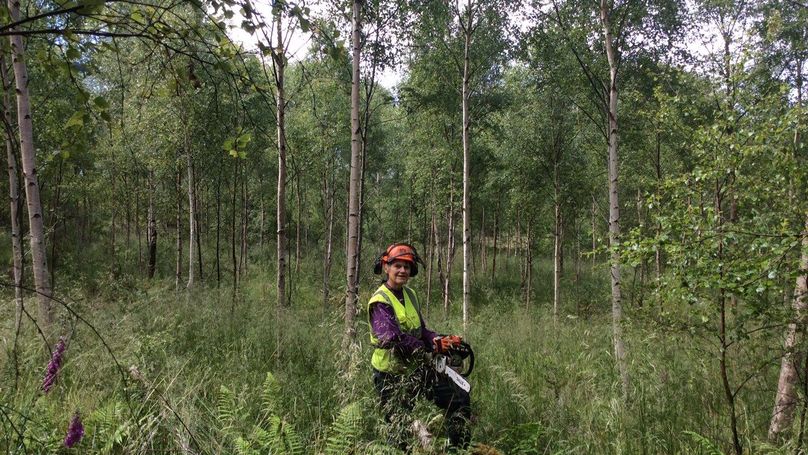To the south of Kirkhill, Inverness-shire, is a small 40-hectare woodland, owned and managed by David Shepard and Annie Griffiths, who over the past three decades have converted the site from a conifer plantation to a productive native broadleaved woodland.
Their objective since buying the Craggach Woods has been to develop a biologically and structurally diverse woodland while also producing high yield and quality timber.
Inspired by the presence of ancient woodland indicator species, they bought an eight-hectare block of commercial mixed conifers close to their house with the intention of replacing them with native broadleaves. This area was clear-felled and converted using a mix of species, mainly oak, birch, alder and gean, all planted in a sympathetic pattern.
After their initial success, they decided to buy the rest of Craggach Woods in 2005. This new area, considerably larger at around 30 hectares, was given the same treatment, clear-felling most of the non-native coniferous species and restocking with native broadleaves with fences erected around these areas to prevent deer browsing.
David says they are “self-taught foresters”, and since they bought the woodland he and Annie have gone on a journey of silvicultural self-education. They looked to European management techniques and practices for inspiration and decided to adopt guidance from a recently translated French book which promotes a single tree/free growth selection process. This allows for the maximum yield class to be achieved, while also enabling a Continuous Cover Forestry (CCF) system to be employed throughout the woodland.
Using small-scale farm machinery has allowed them to conduct low-impact forestry, avoiding disturbance to ground flora, soil compaction and pollution of watercourses. This is in line with their aim of carrying out low impact silvicultural systems (LISS).
In recent years this strategy has culminated in employing a local horse logger to extract coniferous timber during the thinning process. Selling firewood to local homeowners from the thinning operations has generated a steady income which has in turn enabled David and Annie to carry out other operations in their woodland.
David and Annie’s efforts to create an outstanding native woodland have received national recognition, and last year they won the Hunter Blair Trophy for Silvicultural Excellence from Scotland’s Finest Woods Awards.
They have built their own small-scale sawmill, and by milling and kiln-drying the wood themselves, they are able to take full advantage of the timber they produce and supply a valuable product to local furniture makers. This idea of local wood for local jobs is becoming more popular in rural communities.
David and Annie’s approach to managing productive broadleaves has allowed them to make a living when others had told them it could not be done.
They hope their woodland will be able to support the equivalent of one fulltime job for those who inherit it. This would allow for someone to live and work on-site with a high degree of self-reliance and sustainability.
